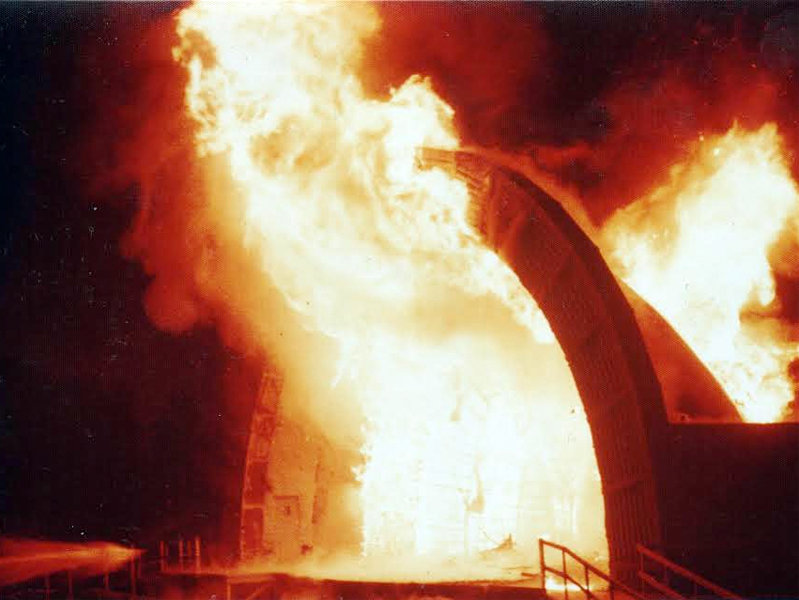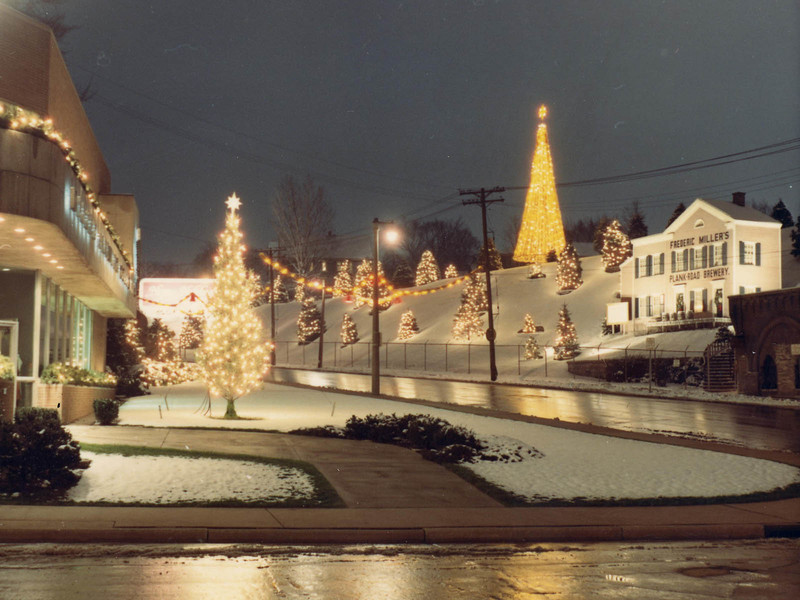A nagging gap on the shelf of books about Milwaukee sports history finally has been filled with the recent publication of "Happy Felsch: Banished Black Sox Center Fielder," a biography of the homegrown icon banned from professional baseball with Chicago White Sox teammate Shoeless Joe Jackson and six others for throwing the 1919 World Series.
Written by Thomas Rathkamp of Cedarburg, the slim (192 pages) but fact-filled volume is a primer about local baseball history as well as the man who might’ve socked his way into the record books but for the lack of sophistication and intellectual fire that accounted for Felsch’s reputation as "the dumbest player on the White Sox."
Called "Happy" for his usually sunny disposition, Oscar Felsch tore up local sandlots and semi-pro leagues in the state starting in 1911, reportedly hit the longest home run in the history of Borchert Field, on N. 8th and W. Chambers Sts., as a member of the minor-league Milwaukee Brewers (it "landed a block away near 8th and Burleigh Streets," says Rathkamp) and joined the White Sox in 1915. For five years, he hit right behind Shoeless Joe in the White Sox batting order.
After he was booted out of big leagues at 28, Felsch played semi-pro ball in Montana and Canada, operated a couple taverns in Milwaukee and worked as a crane operator. He died on Aug. 17, 1964.
Published by McFarland, "Happy Felsch: Banished Black Sox Center Fielder" is $29.95. OnMilwaukee pitched some questions to author Rathkamp, a technical writer by trade, about his book.
OnMilwaukee: What brought you to write about Happy Felsch?
Thomas Rathkamp: I had always been intrigued by the Black Sox scandal and thought it interesting that one of its participants was born in my hometown. I should tell you that my first idea was to write a biography of Al Simmons, but someone else was also working on such a project and he was much further ahead than I was. In the end, I am happy (pardon the pun) that I picked Happy Felsch as my book subject.
You call Felsch "a wonderfully athletic brute of a man who got sucked into a ring of greed, corruption and stunted dreams … " How did that happen?
The reasons are many, but the obvious ones are, one, he was gullible, perhaps due to his lack of education. Two, he was too trustworthy of others, especially teammate Chick Gandil, who recruited Happy. Three, gambling was a huge part of the sport back then and perhaps the thought of throwing games didn't seem as absurd then as it does now. Perhaps the fact that known gamblers were always seen and recognized at games, nobody really noticed anything particularly odd. As Felsch himself said, "It just happened."
Felsch went up to the sixth grade in school. Shoeless Joe Jackson was basically illiterate. Yet baseball writers of that time, you say, "thought that Felsch possessed an even lower IQ" than Jackson. Why?
Well, the only people who really thought that were the writers of the Milwaukee newspaper that echoed what that Chicago reporter shouted out: "Who is the dumbest player on the team." Basically, it was pretty well known it was Shoeless Joe that garnered most of the attention as extremely uneducated. I mean, Jackson's wife had to sign his contracts for him.
"If you pour, he will talk," is one of your chapter titles. It refers to Felsch's fondness for Scotch whiskey and his propensity to confess all under its influence. But at other times, he denied being involved in the 1919 World Series fix. Any doubt in your mind that Felsch was involved?
No doubt at all. In his later two interviews, Felsch pretty much admitted to being involved. But other than that initial meeting of the conspiratorial players, there wasn't much involvement by Felsch, and many others, after that. He was most wishy-washy in his first interview in 1920, but it was, after all, the year the scandal broke. The other two interviews didn't occur until well after Felsch hung up his baseball cleats for good.
Why did it take more than a year for formal charges to be filed against Felsch and the seven other White Sox players accused of dumping the Series to Cincinnati?
Many schools of thought attempt to explain this. Although there were those – most notably Chicago sportswriter Hugh Fullerton – who cried wolf almost from the outset of the Series, once the Series ended, there wasn't much contact with players or owners. Some have written that [White Sox owner] Charles Comiskey himself knew about it earlier but chose to ignore it. I am of the belief that Comiskey did know, although there are many even today that insist on his purity, if you will.
The attorney who prosecuted the players called them "killers (who) conspired to … murder our greatest sport." A.J. Hedding, a Milwaukee judge and semi-pro baseball magnate, likened their offense to treason. Over the top?
Yes, very over the top. Perhaps he was just flirting with metaphors, but yes, the comparison is utterly absurd.
Before the 1919 World Series Felsch told his mother-in-law and Milwaukee friends to bet on the White Sox. What do you suppose was with that?
The White Sox were heavily favored in the Series, so that in itself makes sense. Maybe Felsch forgot about the "throwing games" plan or maybe it was because he intended on playing his tail off throughout. I now believe that, even after the initial meeting of the players to carry this out, Felsch might not have given the fix that much thought.
In 1920, Happy Felsch had the best of his five seasons in the majors, batting .338. How did a guy with complicity in throwing the previous World Series on his conscience manage that?
Well, one's initial impression is that he thought that they got away with the 1919 debacle. My opinion is that he just forgot about it, and 1920 represented a natural progression in his career. He was a natural competitor, and once the 1920 season started, he undoubtedly worked his hardest to succeed.
In your opinion, was Judge Kenesaw Mountain Landis, who became the first Commissioner of Baseball a couple weeks after the Black Sox 8 were formally indicted on October 29, 1920, correct in banning them from the game even though a Chicago jury took less than three hours to find them not guilty?
Although I am inclined to agree with Landis' decision, we know now that he was anything but a fair judge when he occupied the bench and often ignored the law in his rulings.
If the White Sox never became the Black Sox, would Happy Felsch have a plaque in Cooperstown today?
I believe that he would have. As I wrote in the book, I believe that he was every bit the player that fellow Milwaukee native Al Simmons was. And remember also that the Live Ball era had begun in 1920.
Do the steroid scandals besmirching baseball today rise to the level of what happened in 1919?
That's a tough question. I think 1919 was worse mainly because the players agreed to "try" to lose. Say what you want about the steroid users of today, but their goal is obviously the opposite: to win.







